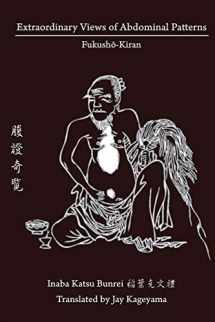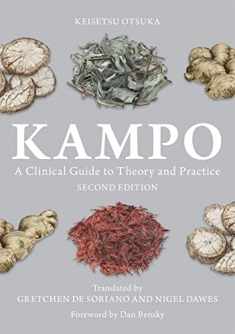
Extraordinary Views of Abdominal Patterns: Fukushō-Kiran 腹證奇覽
Book details
Summary
Description
Inaba Bunrei's Fukushō-Kiran (Extraordinary Views of Abdominal Patterns) is considered to be the most authoritative work on abdominal diagnosis in Japan. This book distills the writings of Zhang Zhongjing into practical system of thought on abdominal diagnosis and the Shang Han Lun or Jin Gui Yao Lue formula which treats each abdominal pattern.
During the Edo period, Kampō, the native Japanese system of medicine began to evolve separately from traditional Chinese medicine, and abdominal diagnosis within Japan became more widely utilized among physicians compared to pulse diagnosis. One reason that abdominal palpation became popular was because it did not rely on the often complicated diagnostic techniques of Chinese medicine, as each abdominal pattern is thought to correspond to a single formula under a theory known as formula-pattern correspondence. These formula-pattern correspondences are captured in eighty-two illustrations, along with Inaba's understandings on the pattern, formula, ingredients, and dosage. Inaba, like all good teachers, weaves stories and anecdotes from his lifetime experience of treating patients into the body of the work. The Fukushō-Kiran has been expertly translated by Jay Kageyama, and the Chinese Medicine Database is excited to add this Japanese text to our growing body of published translations.


We would LOVE it if you could help us and other readers by reviewing the book
Book review




